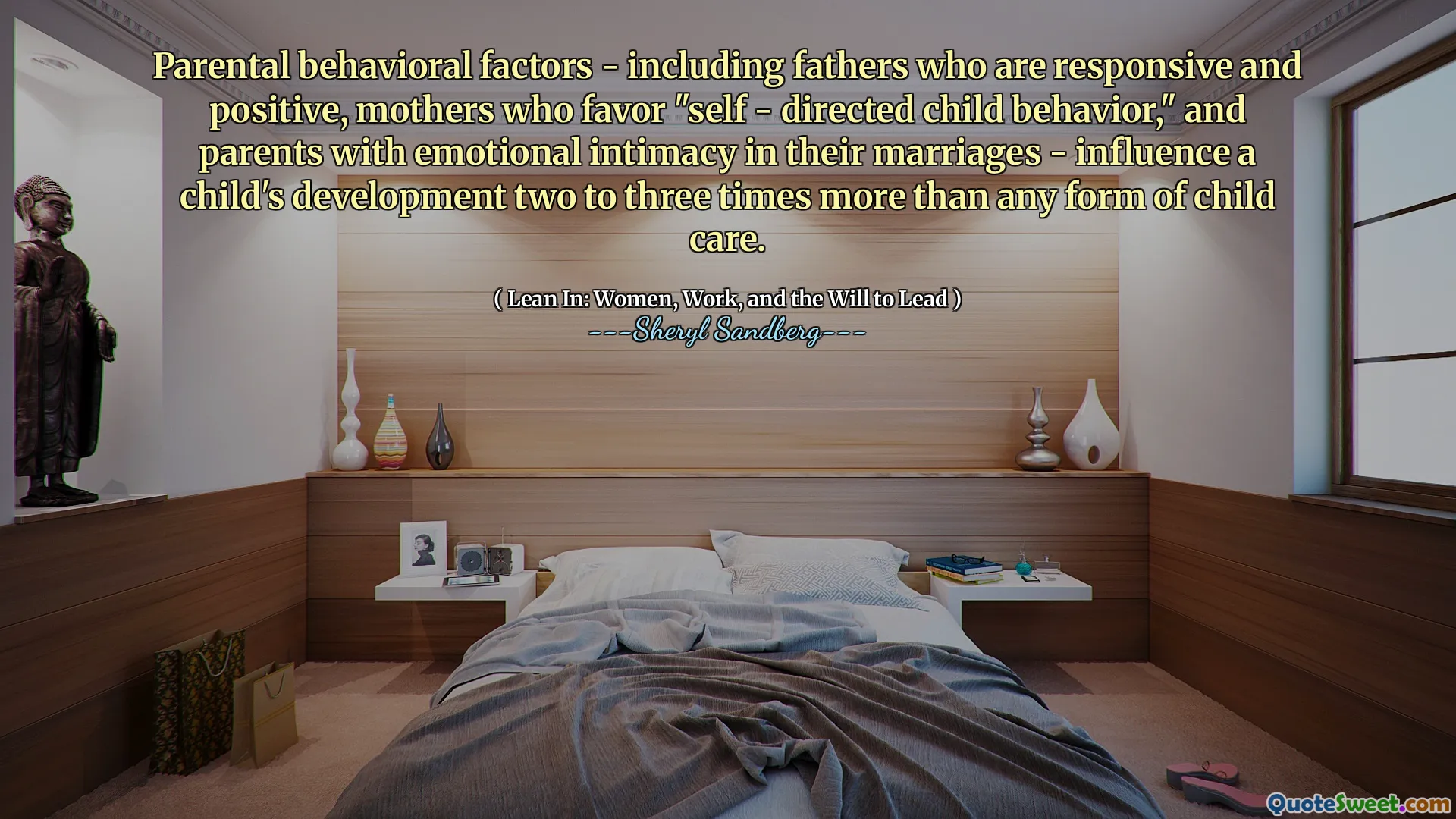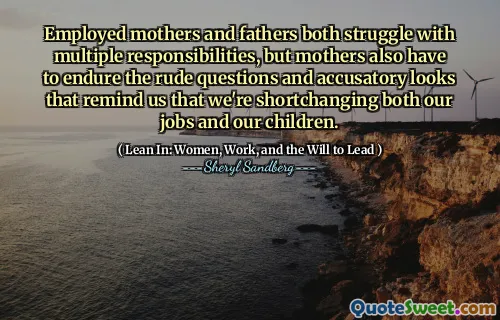
Parental behavioral factors - including fathers who are responsive and positive, mothers who favor "self - directed child behavior," and parents with emotional intimacy in their marriages - influence a child's development two to three times more than any form of child care.
This quote underscores the profound impact that parental behavior and emotional environment have on a child's development, often exceeding the influence of formal childcare arrangements. The emphasis on responsive and positive behavior from fathers highlights the importance of active engagement and emotional support in a father's role, which many studies have linked to healthier social and emotional outcomes for children. Similarly, the mention of mothers favoring "self-directed child behavior" suggests the significance of fostering independence and autonomy in children, enabling them to develop confidence and problem-solving skills. The element of emotional intimacy within marriages further points to the foundational role of a nurturing household environment, where children observe and internalize healthy emotional dynamics. What resonates strongly is the idea that the quality of the parent-child relationship, the emotional tone set within the home, and the behaviors modeled by caregivers are pivotal in shaping children’s future functioning, possibly more than external factors such as daycare or educational settings. This insight calls for a reevaluation of parenting practices, encouraging not only involvement but also emotional attunement and respectful, nurturing behavior. It also reasserts the crucial responsibility parents hold in creating a secure and emotionally rich environment - a mindset that can influence policy, parenting programs, and individual behaviors. Recognizing that the familial emotional climate is so influential can motivate caregivers to prioritize their relationships and behavioral patterns, understanding that these are foundational to their child's well-being and development.











